Watermelon Health Food? The Benefits Of L-citrulline And Watermelon
Video Link: https://vimeo.com/181414979
Video Download: Amazing Health Benefits Of L Citrulline And Watermelon 2
Video Stream: Amazing Health Benefits Of L Citrulline And Watermelon 2
Video Link: https://vimeo.com/181414526
Video Download: Amazing Health Benefits Of L Citrulline And Watermelon 1
Video Stream: Amazing Health Benefits Of L Citrulline And Watermelon 1
Amazing Health Benefits of L-Citrulline and Watermelon
In a previous article, we discussed twenty-five foods that provide amazing benefits for human health. There is one amazing food that we missed, however: Watermelon.
In recent years, scientists and health professionals are becoming more aware of the amazing nutritional benefits provided by watermelon.
One thing that we have known for a while is that watermelons, like tomatoes, have been shown to be a food that is incredibly high in Lycopene content. 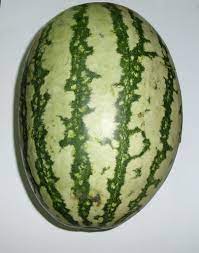 Lycopene is a form of phytonutrient which is incredibly important for optimal cardiovascular health. Lycopene also provides significant benefits in regard to bone health. Two other quality sources of Lycopene are Guava and Pink Grapefruit. What truly makes Watermelon stand out from the rest is the outstanding concentration of one particular nutrient.
Lycopene is a form of phytonutrient which is incredibly important for optimal cardiovascular health. Lycopene also provides significant benefits in regard to bone health. Two other quality sources of Lycopene are Guava and Pink Grapefruit. What truly makes Watermelon stand out from the rest is the outstanding concentration of one particular nutrient.
The Fantastic Benefits of L-Citrulline
Although we have understood the importance of Lycopene for a number of years, we are learning about another nutrient contained within watermelon that is incredibly potent: L-Citrulline. L-Citrulline is present in watermelon at levels higher than any other food we know of in the world.
L-Citrulline is a powerful Amino Acid compound that is uncommon in most foods. When we consume foods like watermelon containing Citrulline, the nutrient travels to the kidneys, which are converted into Arginine.
As you know, if you have read this site, Arginine is actually used by physicians in order to test the health of the pituitary. Arginine has the ability to naturally stimulate the production of Human Growth Hormone. Adding L-Citrulline to your diet can help you maintain healthy levels of HGH, promoting optimal health and providing benefits to physiological systems throughout the body.
How much L-Citrulline is in a Serving of Watermelon?
Watermelon truly contains an amazing amount of L-Citrulline: 250 mg in every cup. Although much L-Citrulline is converted into Arginine, the nutrient also provides its own unique benefits. In addition to increasing Human Growth Hormone, Arginine also has direct effects on maintaining heart health, improving circulation, and increasing blood flow to disparate locations of the body.
L-Citrulline and Obesity
Also, current research suggests that L-Citrulline encourages weight loss and improved weight maintenance. In animal research, there is strong evidence that L-Citrulline contributes to the production of fat antagonists, preventing fat cells from absorbing fat by blocking an enzyme known as TNAP.
In animal research, high levels of Citrulline consumption directly correlate with increased production of amino acid compounds known as Polyarginine Peptides. When L-Citrulline is consumed, it is converted into Arginine by the kidneys, and Arginine is then converted into these Polyarginines. Polyarginines are directly responsible for blocking fat absorption by inhibiting TNAP enzymes. When TNAP is blocked, this prevents fat cells from growing and multiplying with the same level of efficiency.
Although this seems to be the primary mechanism by which L-Citrulline blocks fat accumulation, scientists hypothesize that a combination of Nitric Oxide Production and changes in adipose fat metabolism will likely lead to L-Citrulline being used medically as a tool in the war against obesity.
A Natural Answer to Erectile Dysfunction: L-Citrulline Boosts Nitric Oxide Production
L-Citrulline can also encourage healthier production of Nitric Oxide by the human body through its role in creating an enzyme known as Nitric Oxide Synthase. After L-Citrulline is converted into Arginine by the kidneys. it is then absorbed by human cells and converted into Nitric Oxide. Nitric Oxide is a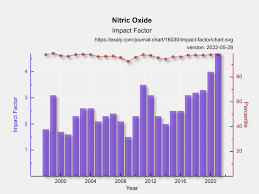 natural muscle relaxer that is also necessary in order to stimulate the male erection.
natural muscle relaxer that is also necessary in order to stimulate the male erection.
When the body releases Nitric Oxide, the blood vessels relax, improving blood pressure and contributing to a healthier cardiovascular system. This increase in blood flow also stimulates healthy sexual function in males. Erectile Dysfunction Drugs like Viagra and Sildenafil actually relieve ED by stimulating the production of Nitric Oxide and improving blood flow to the genitals.
Of course, don't read this information and think that Watermelon can be a replacement for drugs that reverse Erectile Dysfunction or improve blood pressure because the levels of L-Citrulline present in Watermelon are not medical in concentration. L-Citrulline is a vital piece of a puzzle contributing to optimal cardiovascular health.
How Much Watermelon Does it Take to Provide Significant Effects from L-Citrulline?
In human patients, watermelon consumption has been scientifically proven to boost Arginine Levels in the body, but only when eaten in large portions. In one particular study, subjects drank either 3 or 6 cups of watermelon juice each day for three weeks. This increase in Watermelon Consumption led directly to boosts of Arginine varying from 12 to 22 percent.
In terms of calories consumed, that is still pretty amazing. Three portions of watermelon contain 135 calories, provide 60% of your daily value of Vitamin C, and increase your Arginine Levels by at least 12 percent. If you enjoy watermelon, there is arguably no food that can have such a direct impact on your Arginine Levels.
What is the Healthiest Part of a Watermelon?
Most people consider the part of the fruit with the deepest color the healthiest part. This is certainly true for foods like grapes, but for watermelon, each part of the watermelon contains high levels of different nutrients in different concentrations. The core portion of the watermelon is bright red in color and is a much lighter pink closer to the rind.
A few years ago, nutritional researchers studied the nutritional content of various fruit areas and came to some amazing conclusions. Watermelon has four primary forms of nutrients: Vitamin C, Lycopene, Flavonoids, and Antioxidants. Every* part of the watermelon contains large amounts of these different nutrients in different locations within the watermelon.
What Are the Healthiest Kinds of Watermelon?
In addition to this, every type of watermelon appears to have its own particular form of nutrient distribution. Unlike many types of foods raised agriculturally these days, all types of watermelon have high levels of nutrient concentration. Another thing that is particular about watermelon is that the 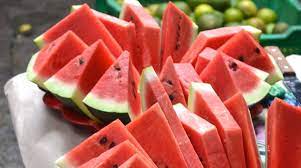 lighter-colored pulp of the watermelon contains nutrient levels that rival those in the core of the watermelon in many aspects.
lighter-colored pulp of the watermelon contains nutrient levels that rival those in the core of the watermelon in many aspects.
In order to obtain the most benefits, however, it is important to pick a type of watermelon that produces a deep red color in the late stages of ripening.
When selecting the ideal watermelon, the primary thing to remember is to select a completely ripened watermelon. Studies demonstrate that watermelon contains the highest concentration of Lycopene when the watermelon is primarily red in color.
Ripened watermelon is also rich in Beta-Carotene, but early in the ripening process, there is almost no Beta-Carotene contained within the melon. This is also true of anti-oxidants contained within the watermelon.
If you grow your own watermelons, patience is the key to extracting the most nutrition out of the final product. However, the key is to have a keen eye for detail if you are shopping at a store.
Other Watermelon Benefits
Watermelon Provides Great Antioxidant and Anti-Inflammatory Support
Watermelon contains high levels of a number of different phenol nutrients, carotenoids, flavonoids, and triterpenoids. All of these nutrients are powerful Antioxidant compounds. Watermelon has the most significant concentration of Lycopene among all these compounds. It is actually a source so potent that very few foods can even match it, among which are guava and pink grapefruit.
Why Are Watermelons Red?
The red color in most foods comes from two sources: Anthocyanin Flavonoids and Lycopene. Anthocyanins contribute very little to overall health, but Lycopene, on the other hand, produces all sorts of wonderful benefits.
Lycopene has been shown to be a powerful Anti-Inflammatory which is capable of inhibiting the production of enzymes such as lipoxygenase and cyclo-oxygenase, which spread inflammation.
Lycopene and Cucurbitacin-C
Lycopene is also able to prevent damage that is produced by natural free-radical exposure as a result of its antioxidant properties. Another Anti-Inflammatory that is present in very few foods is Cucurbitacin-C. This nutrient works very similarly to Lycopene, although it is most effective at limiting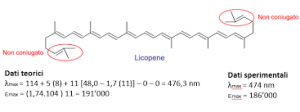 free radicals by a different biological mechanism.
free radicals by a different biological mechanism.
Watermelon Keeps Incredibly Well
Another thing that makes watermelon an excellent choice in a healthy diet is that nutrient levels drop very slowly over time. Even after two days of storage after the fruit has been chopped and prepared, the Lycopene levels in the fruit remain optimal. The fruit remains near peak nutritional content almost up to a week after it has been prepared.
Watermelons: The Redder, the Better
If you are using Watermelon as your primary source of Lycopene, choose varieties with dark-red flesh. Research has shown that red-fleshed watermelons have up to 120 times the beta-carotene level as some light-pink watermelon varieties. In addition, light pink watermelon varieties contain almost no Lycopene. If you are not primarily concerned with Lycopene and Beta-Carotene, all types of watermelon contain various levels of a number of phytonutrients.
Watermelon is an Efficient Source of Vitamin C
Although we have been primarily focusing in this article on L-Citrulline, Lycopene, and Beta-carotene, Watermelon is also amazing because it contains so many other vital nutrients as well. Another one of these nutrients is Vitamin C. Per calorie, watermelon provides a significant amount of the nutrient per calorie.
One serving provides 20% RDV of Vitamin C for a tiny amount of calories, only 45. This makes it great for individuals that are on a diet and trying to figure out a way to maximize their nutritional intake.
Why Should I Eat Watermelon Seeds?
Although most people seem to spit out the seeds, there are beneficial nutrients contained within watermelon seeds as well. watermelon seeds have a small but significant amount of both Zinc and Iron: not enough to provide you with all that you need, but a useful supplement to other sources of these minerals in your diet.
Another reason you should eat your seeds is that watermelon Seeds provide zinc and Iron in ways that your body can readily digest and use. Studies show that around ninety percent of the Iron and Zinc from watermelon seeds are Bio-Available.
Watermelon seeds also provide a significant amount of protein, around a gram for every twenty-four seeds. This means that you will get a healthy amount of protein just by eating a few slices of watermelon (if the watermelon contains seeds, of course!) You'll still need other protein sources, but watermelon seeds can help you maintain a low-calorie diet while also getting the protein you need.
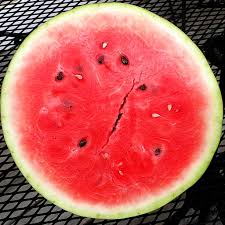 Watermelon also provides a decent amount of dietary fiber. If you ate two hundred calories of watermelon, you'd get about four grams of fiber for your trouble. There are better sources, of course, but in addition to the antioxidant benefits of watermelon, watermelon will make a solid dent in your daily dietary needs. Watermelon also contains healthy amounts of soluble fiber in addition to insoluble fiber.
Watermelon also provides a decent amount of dietary fiber. If you ate two hundred calories of watermelon, you'd get about four grams of fiber for your trouble. There are better sources, of course, but in addition to the antioxidant benefits of watermelon, watermelon will make a solid dent in your daily dietary needs. Watermelon also contains healthy amounts of soluble fiber in addition to insoluble fiber.
Most people know that Insoluble Fiber helps maintain regularity and digestive health, but fewer people realize that soluble fiber is incredibly important for maintaining the health of the heart and the cardiovascular system.
Watermelon: An Amazing and Efficient Way to Increase the Health of Your Diet!
Watermelon is a cheap and delicious fruit that does wonders for your health. The light, sweet taste may make you feel like watermelon is not an effective choice for an ideal diet, but that can be no further from the truth.
We recommend adding watermelon to your diet on a regular basis. If you really enjoy it, consider making it one of your primary snacks or desserts! It tastes great while being one of the most Calorie-Efficient Fruits available. We recommend watermelon for the benefits of L-Citrulline alone, but all of the additional benefits make it a no-brainer!
- Xylitol is a Natural, Plant-Sourced and Low-Calorie Sweetener [Last Updated On: January 8th, 2025] [Originally Added On: January 12th, 2021]
- The Secret Behind Keeping the Weight Off for Good -- No More Losing and Gaining Cycles! [Last Updated On: January 17th, 2025] [Originally Added On: January 13th, 2021]
- The Cognitive Benefits of Starting a CoQ10 (Coenzyme Q10) Supplement Regimen [Last Updated On: January 12th, 2025] [Originally Added On: January 14th, 2021]
- It's Time to Understand Why Vitamin C is Critical for Our Health and Longevity! [Last Updated On: January 10th, 2025] [Originally Added On: January 15th, 2021]
- Snoring is the Most Common Early Symptom of Sleep Apnea -- Do You Suffer From It? [Last Updated On: January 11th, 2025] [Originally Added On: January 16th, 2021]
- Vitamin-d Longevity Vitamin [Last Updated On: January 2nd, 2025] [Originally Added On: January 17th, 2021]
- Twenty Simple Weight Loss Tips That Can Change Your Life [Last Updated On: January 1st, 2025] [Originally Added On: January 18th, 2021]
- Twelve Ways To Control Cravings [Last Updated On: February 22nd, 2025] [Originally Added On: January 19th, 2021]
- The Truth About The Zone Diet [Last Updated On: January 1st, 2025] [Originally Added On: January 20th, 2021]
- The Truth About The Schwarzbein Principle [Last Updated On: December 31st, 2024] [Originally Added On: January 21st, 2021]
- The Truth About The Realage Diet [Last Updated On: December 31st, 2024] [Originally Added On: January 22nd, 2021]
- The Truth About The Origin Diet [Last Updated On: December 30th, 2024] [Originally Added On: January 23rd, 2021]
- The Truth About The Eat Right, Live Longer Diet -- Nourishing Food Equals Increased Longevity [Last Updated On: January 31st, 2025] [Originally Added On: January 24th, 2021]
- The Essential Roles Magnesium Plays For Our Energy Levels, Skin Youthfulness and Mental Health [Last Updated On: January 4th, 2025] [Originally Added On: January 25th, 2021]
- The Real Skinny On Vitamin B12. What It Can And Cannot Do For You [Last Updated On: March 23rd, 2025] [Originally Added On: January 26th, 2021]
- The Importance And Purpose Of Stress [Last Updated On: February 18th, 2025] [Originally Added On: January 27th, 2021]
- The Ideal Balanced Diet The Reality Of Healthy Eating [Last Updated On: December 30th, 2024] [Originally Added On: January 28th, 2021]
- The Effects Of Cortisol On The Body [Last Updated On: July 28th, 2024] [Originally Added On: January 29th, 2021]
- Sixteen Common Foods That Increase The Cancer Risk [Last Updated On: December 29th, 2024] [Originally Added On: January 30th, 2021]
- Should You Consider Intermittent Fasting? [Last Updated On: November 24th, 2024] [Originally Added On: January 31st, 2021]
- Can Caloric Restriction Help You Lose Weight And Live Longer? [Last Updated On: November 24th, 2024] [Originally Added On: February 1st, 2021]
- How Does Poor Sleep Rob Vitality And Health? [Last Updated On: November 24th, 2024] [Originally Added On: February 2nd, 2021]
- Nine More Natural Ways To Relieve Anxiety [Last Updated On: November 24th, 2024] [Originally Added On: February 3rd, 2021]
- Metabolism Boosting Tips For Losing Weight And Feeling Great [Last Updated On: November 22nd, 2024] [Originally Added On: February 4th, 2021]
- Juicing Pros And Cons [Last Updated On: March 22nd, 2025] [Originally Added On: February 5th, 2021]
- Insomnia Guide [Last Updated On: November 21st, 2024] [Originally Added On: February 6th, 2021]
- How To Lose Weight With Human Growth Hormone [Last Updated On: November 20th, 2024] [Originally Added On: February 7th, 2021]
- How Safe Is Monosodium Glutamate AKA Msg? [Last Updated On: November 23rd, 2024] [Originally Added On: February 8th, 2021]
- How Is Sleep Apnea Diagnosed And Treated [Last Updated On: November 18th, 2024] [Originally Added On: February 9th, 2021]
- Hidden Sources Of Sugar In Common Foods [Last Updated On: November 17th, 2024] [Originally Added On: February 10th, 2021]
- How Would You Like to Potentially Add 14 Healthy and Youthful Years to Your Life Span? [Last Updated On: November 19th, 2024] [Originally Added On: February 11th, 2021]
- Four Reasons Why Healthy Sleep Encourages Weight Loss [Last Updated On: November 16th, 2024] [Originally Added On: February 12th, 2021]
- Omega-3 Fatty Acid Facts And How They Relate To Hormone Replacement Therapy [Last Updated On: July 25th, 2024] [Originally Added On: February 14th, 2021]
- Drink Right To Live Well [Last Updated On: November 15th, 2024] [Originally Added On: February 15th, 2021]
- Consumers Of Processed Meat Put Themselves At Risk [Last Updated On: November 14th, 2024] [Originally Added On: February 16th, 2021]
- Comparing The Same Mass Of Muscle And Fat [Last Updated On: February 19th, 2025] [Originally Added On: February 17th, 2021]
- Alcohol Appears To Impact Sperm Quality [Last Updated On: November 12th, 2024] [Originally Added On: February 19th, 2021]
- The Benefits of Selenium - Should You Take a Selenium Supplement? [Last Updated On: February 9th, 2025] [Originally Added On: April 8th, 2021]
- Selenium and its Impact on Your Health and Hormones [Last Updated On: March 3rd, 2025] [Originally Added On: April 8th, 2021]
- Scientifically Proven Benefits Of Turmeric The Indian Spice [Last Updated On: March 18th, 2025] [Originally Added On: April 27th, 2021]
- Natural Remedies for Heartburn or Acid Reflux [Last Updated On: February 18th, 2025] [Originally Added On: May 22nd, 2021]
- What the Heck Is a Raisin, Anyway and Why Would I Want to Eat One? [Last Updated On: August 18th, 2024] [Originally Added On: June 10th, 2021]
- Fat-Focused Diet May Help Boost Testosterone [Last Updated On: February 17th, 2025] [Originally Added On: June 10th, 2021]
- Chia Seeds: More Than Just a Fad [Last Updated On: July 12th, 2024] [Originally Added On: June 24th, 2021]
- Intermittent Fasting Boosts Growth Hormone, and Improves Cognitive Health [Last Updated On: March 4th, 2025] [Originally Added On: May 2nd, 2022]
- Growth Hormone, Nutrition, and Diet Affect Longevity [Last Updated On: February 14th, 2025] [Originally Added On: May 6th, 2022]
- How Your Health is Affected by Brown and White Fat [Last Updated On: February 14th, 2025] [Originally Added On: May 17th, 2022]
- Tesamorelin Boosts HGH Levels and Burns Belly Fat [Last Updated On: February 14th, 2025] [Originally Added On: May 21st, 2022]
- Build Muscle With Tofu - Don't Fear Soy [Last Updated On: December 29th, 2024] [Originally Added On: July 12th, 2022]
- Balancing HGH Levels with Weekly Sogroya [Last Updated On: December 28th, 2024] [Originally Added On: September 1st, 2022]
- Pecans Are Amazing [Last Updated On: February 19th, 2025] [Originally Added On: November 22nd, 2022]
- The Benefits of Fenugreek [Last Updated On: October 14th, 2024] [Originally Added On: November 24th, 2022]
- The Foods To Eat To Increase Stem Cells [Last Updated On: March 6th, 2025] [Originally Added On: December 7th, 2022]
- The Versatility of Pecans [Last Updated On: February 19th, 2025] [Originally Added On: February 9th, 2025]
- Understanding The Concept: A Pound Of Muscle Vs. A Pound Of Fat [Last Updated On: February 19th, 2025] [Originally Added On: February 11th, 2025]
- The Aging Enigma: Unravelling the Web of Human Growth Hormone Decline [Last Updated On: February 17th, 2025] [Originally Added On: February 12th, 2025]
- Rekindling the Flame: How a Fat-Friendly Diet Can Ignite Testosterone Levels [Last Updated On: February 14th, 2025] [Originally Added On: February 13th, 2025]
- Unlocking Your Inner Fountain of Youth: The Magic Elixir of HGH Injections for Women [Last Updated On: February 17th, 2025] [Originally Added On: February 14th, 2025]
- Effective Strategies for Controlling Cravings [Last Updated On: February 17th, 2025] [Originally Added On: February 17th, 2025]
- Overview of Hormone Replacement Therapy and the Role of Intermittent Fasting [Last Updated On: February 22nd, 2025] [Originally Added On: February 22nd, 2025]
- Understanding the Power of Stem Cells [Last Updated On: February 24th, 2025] [Originally Added On: February 24th, 2025]
- The Role of Selenium in Health and Hormones [Last Updated On: February 26th, 2025] [Originally Added On: February 26th, 2025]
Word Count: 1937







